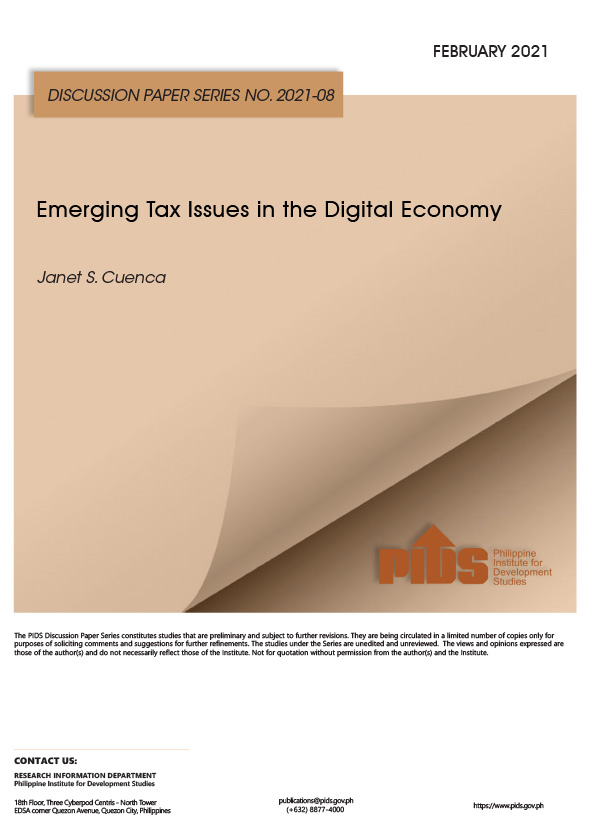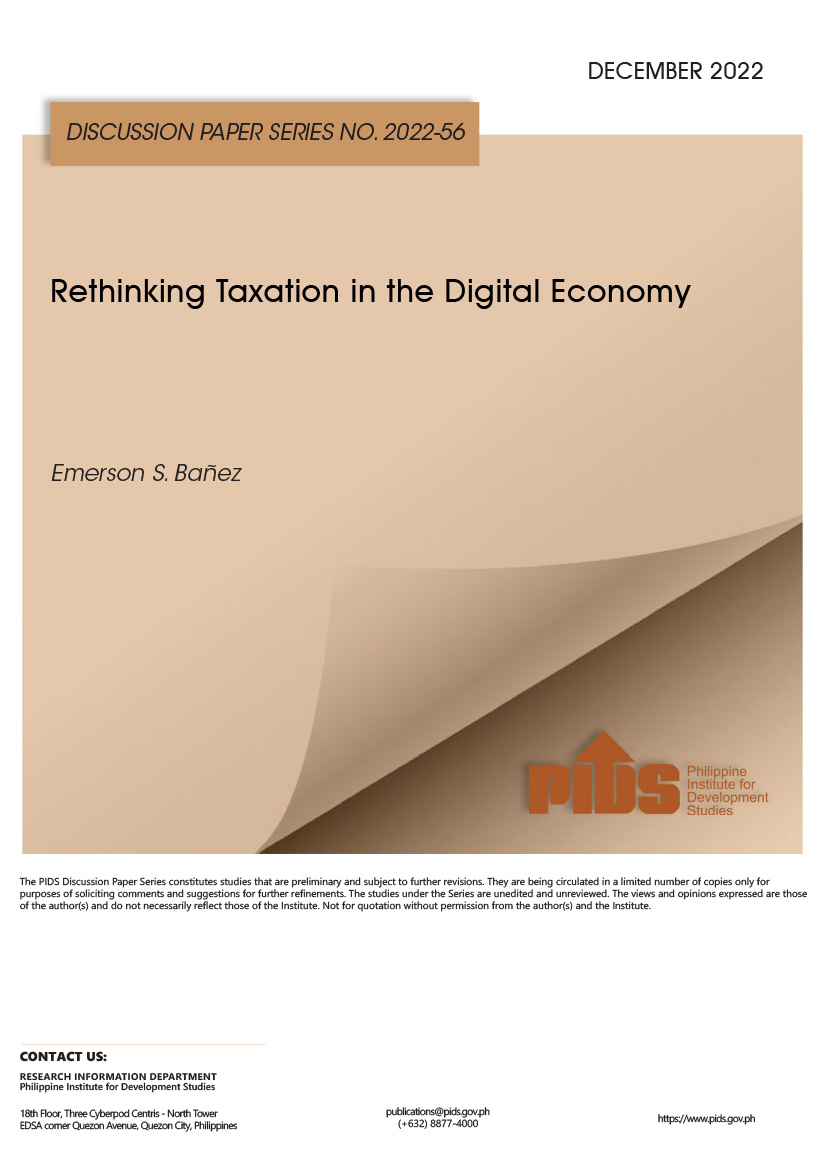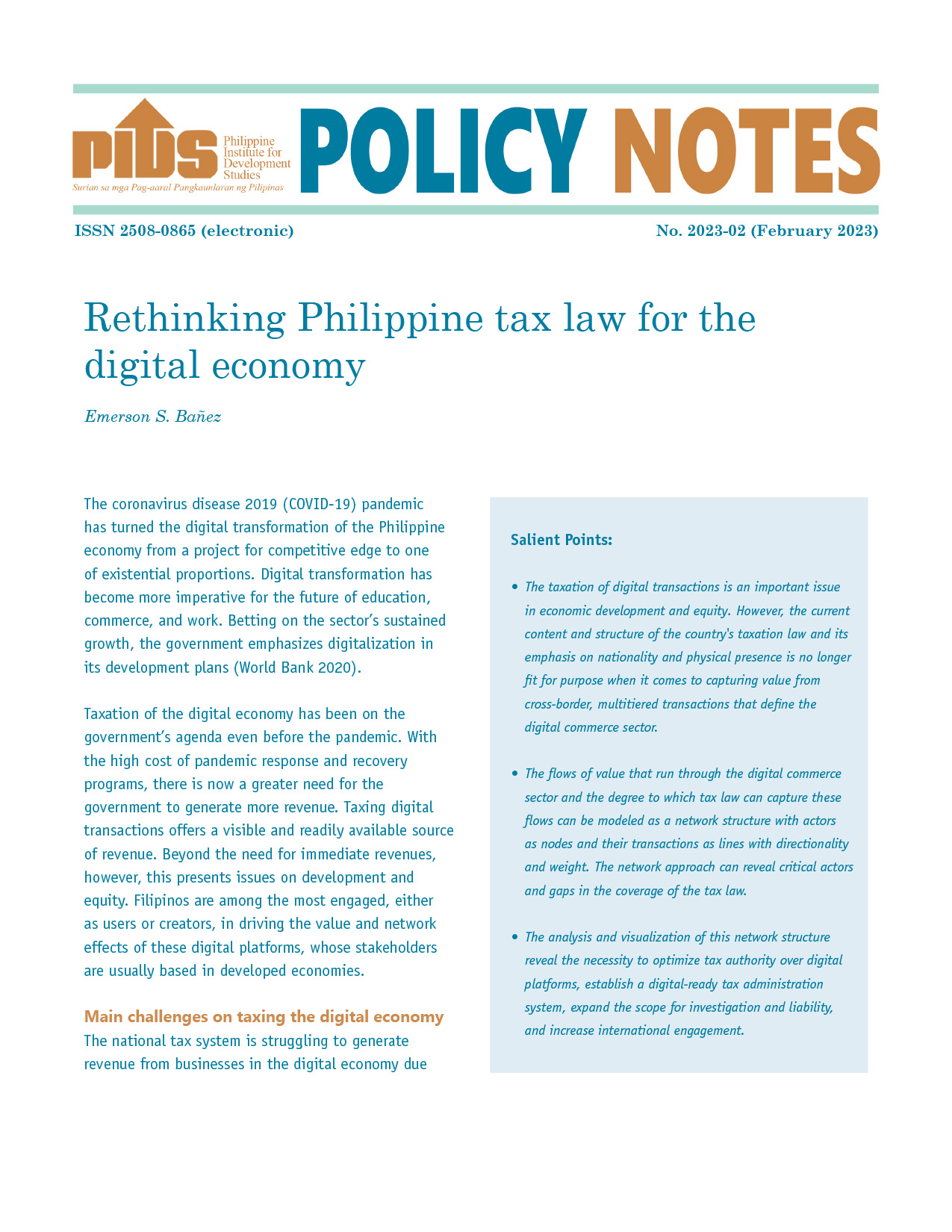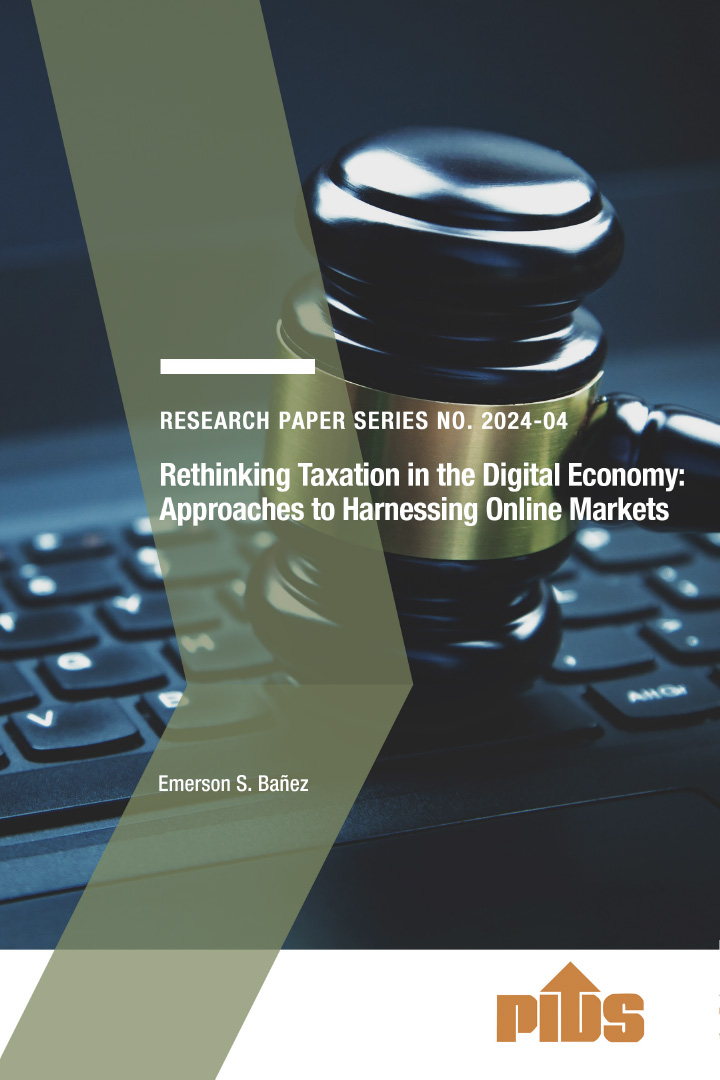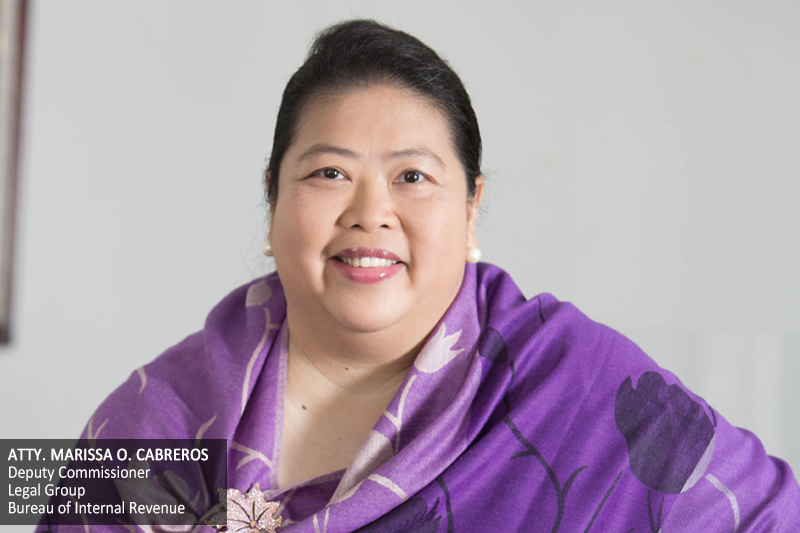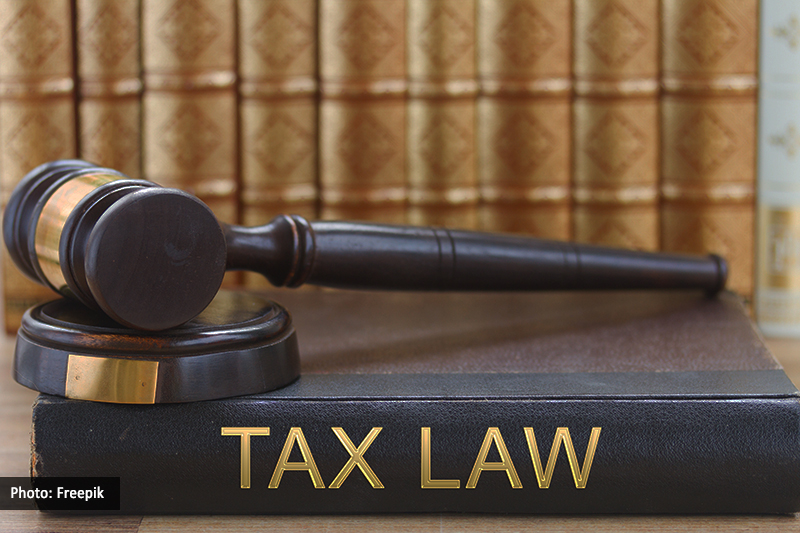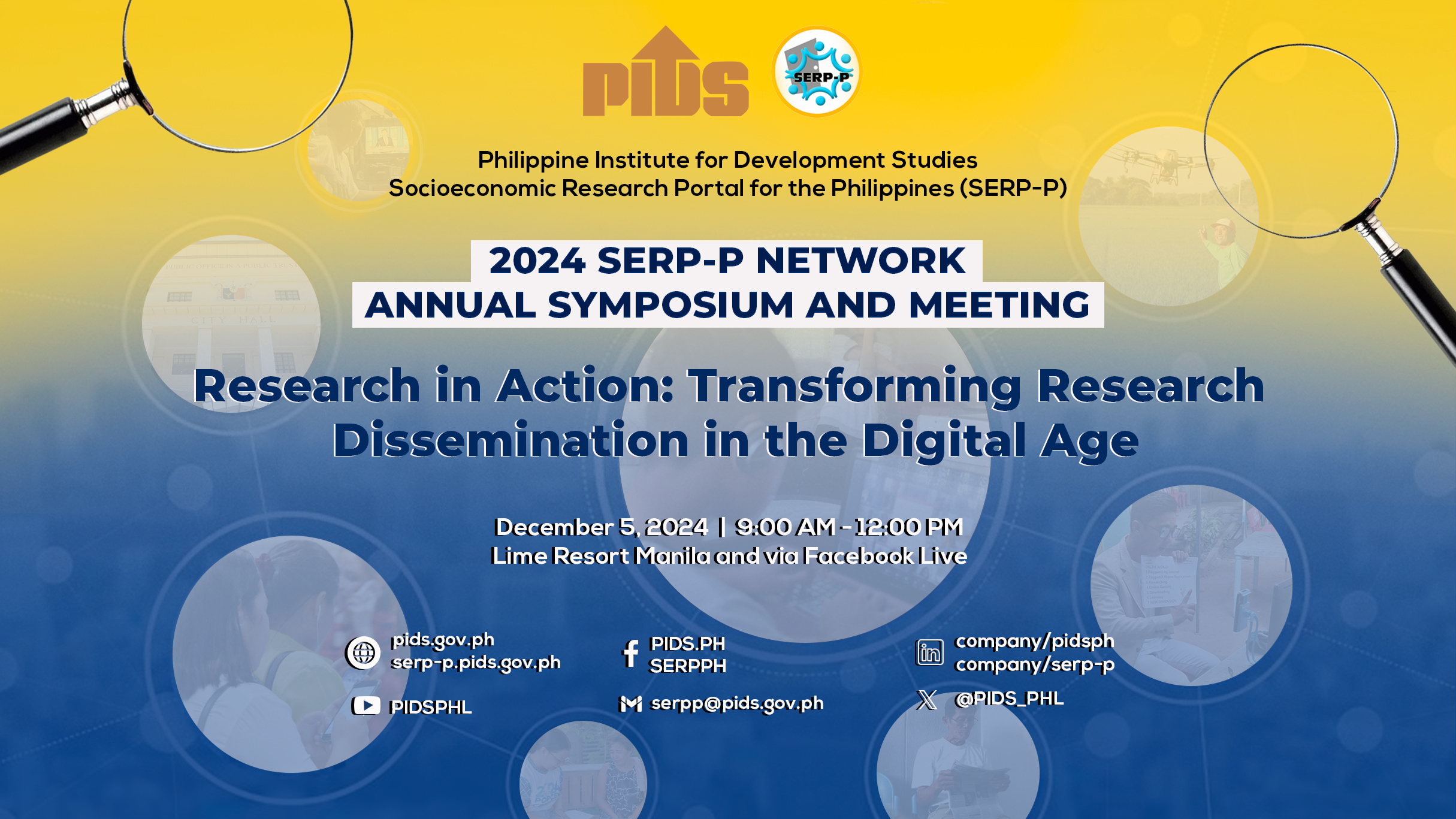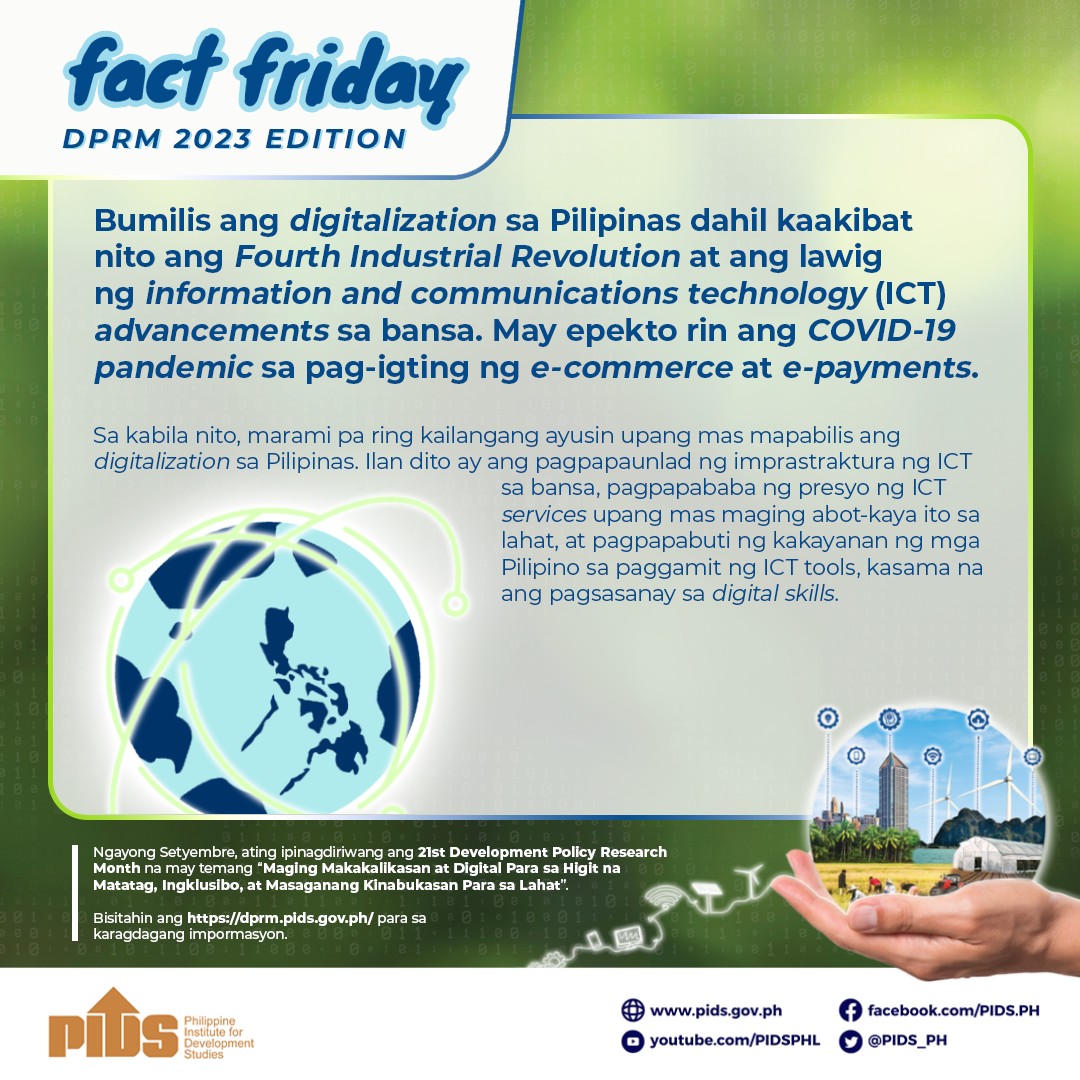The issues and challenges in taxation in the digital economy stem from the complex and multifaceted nature of the digital economy. Reaching a common understanding and measurement of its size and impact is critical in devising a tax regime for the digital economy. In APEC Secretariat (2019), the Philippines identified the major barriers and challenges (i.e., scoping and measurement of the digital economy, the regulatory and legal framework--including sandboxes and digital infrastructure gap) to implementing structural reforms relating to the digital economy. It also identified the major policy gaps in terms of its regulatory and legal framework, competition policy, internet infrastructure improvements, and consumer education on digital economy. The opportunities and challenges that the digital economy brings are particularly important for developing countries, including the Philippines. Thus, it is deemed critical for the Philippine government to eliminate the barriers and challenges and address the identified policy gaps to fully reap the benefits from the digital economy. Also, the need for development strategies cannot be overemphasized. This paper argues that development strategies should first focus on developing domestic digital capacities.
Comments to this paper are welcome within 60 days from date of posting.
Email publications@mail.pids.gov.ph.
Citations
This publication has been cited 5 times
- Beatrice M. Laforga . 2021. Taxation of digital firms seen hindered by policy, lack of infrastructure. Business World.
- Cai Ordinario . 2021. PIDS: Tax gaps in PHL digital economy may require infrastructure expansion to resolve. Business Mirror.
- Jun Yap . 2021. PIDS study sees barriers on taxing Phl digital firms. Tribune.net.
- Louise Maureen Simeon . 2021. ‘Taxing digital services still a long way to go’. Philippine Star.
- Newsbytes.PH . 2021. BIR exec says gov’t needs to craft policies, laws for digital taxation in PH. NewsBytes.

